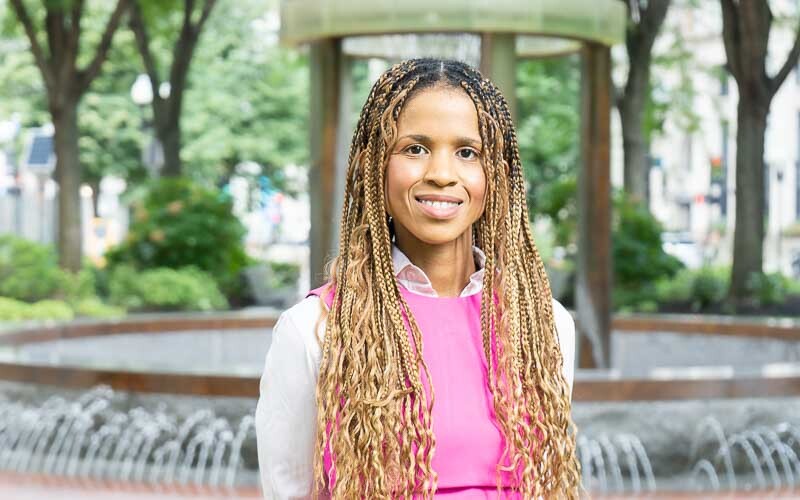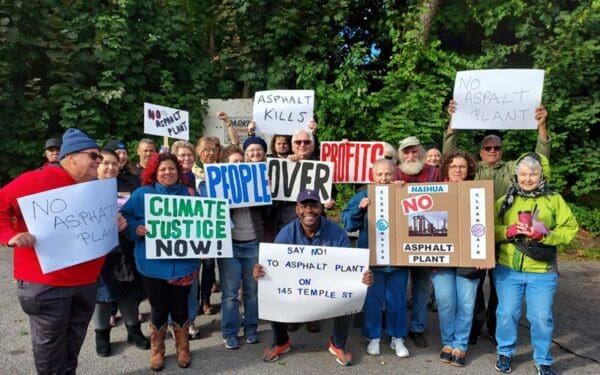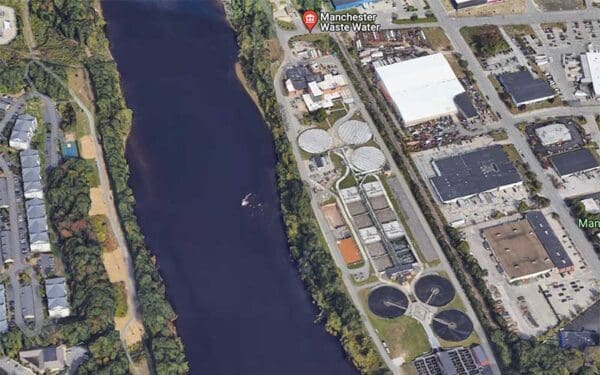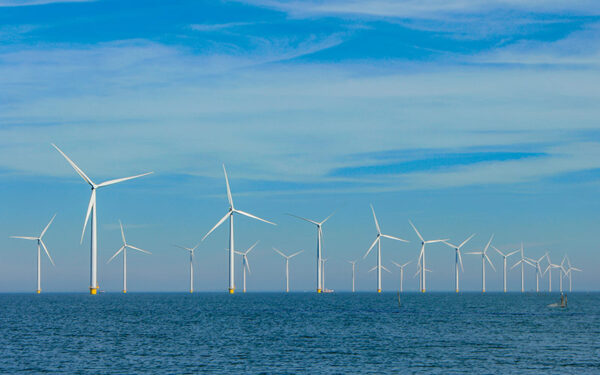
Learn more about Britteny Jenkins, CLF's Vice President for Environmental Justice. Photo: Adilson González Morales.
Britteny Jenkins, CLF’s new vice president for environmental justice, brings a vast wealth of expertise in policy and advocacy. She will lead our transportation, climate justice, and zero waste efforts.
What does environmental justice mean to you?
Britteny Jenkins: For me, environmental justice starts by acknowledging that the way we’ve historically worked to push development and environmental policies in the U.S. has been plagued with racism – from the placement of landfills to where we decide to build a highway.
From this perspective, environmental justice means asking the right questions to help us see beyond solutions. We must certainly fight pollution and electrify our transit. But we must lead by asking: “How can we move these solutions forward without repeating the wrongs of the past?” We can take that a step further, “What are we doing so that communities historically impacted by the racism built into our environment – living and physical – also benefit from these solutions?”
Finally, these benefits should come from elevating these community voices, listening to their needs, and supporting their advocacy. Talking on behalf of communities is not enough, we should bring them to the table and follow their lead.
As the head of CLF’s Environmental Justice program, what’s the number one goal you hope to accomplish?
Britteny Jenkins: When it comes to passing environmental policies and creating climate solutions, New England is already leading the way. A big goal for me is to build upon that leadership and take it a step further. We want to set an example for the rest of the country of how to create change in a just way. That means holding polluters accountable so that – on top of benefiting the environment – we uplift people of color and low-income communities across the region.
How have your experiences in government shaped your career?
Britteny Jenkins: Working alongside influential figures like Elijah Cummings and Rashida Tlaib (U.S. House Representatives from Maryland and Michigan, respectively) exposed me to the real-world impact of environmental policy on communities. Those experiences have defined my perspective of what giving power to the people means. It’s not just about holding a position. It’s about using that position to privilege those who, for far too long, have not had a seat at the table – even though their lives are most affected.
But having a seat at the table is just the first step toward accountability and good policy. Truly involving the community requires more work. It’s two-fold: First, we need to engage the folks affected by these policies and make sure their voices are heard. That means proactively making space for their voices – not simply having them in the meeting room. And two, we need to make sure that hearing the community is much more than a checkbox. Beyond being heard, folks deserve to lead the path of the policies and litigation coming from these discussions. Our advocacy must be guided by what they need and want for their community – not by what we think needs to be done.
What are some challenges you foresee in advancing environmental justice in New England?
Britteny Jenkins: We’re reaching a critical moment for action in many spaces. We’re running out of groundwater, we have a lot of trash, we don’t know exactly what to do with our transportation systems, etc. But when we talk about fixing these issues, it’s easy to fall into the bad habit of wanting to fix these issues expeditiously – even if those affected don’t get to be part of the solution. The assumption is that everyone – including black and brown communities – will benefit from fixing the problem. But that’s a slippery slope that can lead to more harm than good.
If we forsake talking to people to move things quickly, we risk increasing the disparities that many underprivileged communities already face. Moving away from that mentality is going to be a big challenge – especially as more money comes in to help in the climate space.
You just moved to New England, what excites you the most about the region?
Britteny Jenkins: The environmental community! There are so many opportunities and so many people here who are really invested and excited to do the work. Environmental work can seem big and daunting to navigate. But New England is a large area, yet intimate enough that you feel like you can really drive positive change. That excites me.
Right now, I’m about a mile from this lovely harbor. I can go for a run in the mornings and get a view of the lovely cityscape of Boston. My neighborhood in Dorchester has a welcoming and warm running community. Everyone says hello and greets me with an encouraging smile – it keeps me going.
What I have enjoyed the most about New England so far is that you get a little bit – or better said, a lot – of everything. You can be in the Cape by the beach or go north and explore the mountains. You have the big cities and the small quaint towns.
And I’m also a huge football fan – I love my Carolina Panthers. So, appreciate the region’s sports culture, though I’ll never root for the Patriots.




